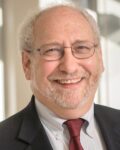Faculty Who Lead: UC Law SF Experts Discuss Executive Power, Medicaid, Asylum, the Environment and More
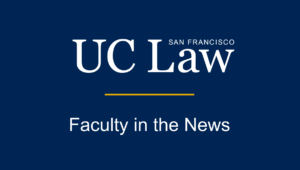
UC Law San Francisco faculty are adding important legal context and meaning to issues at the center of the national debate, including San Francisco’s Presidio, the future of Medicaid, and international asylum seekers fleeing abuse.
Some publications may require registration or a subscription.
Executive Power
San Francisco Chronicle
Professor Matt Coles discusses similarities in executive compliance with judicial authority to former authoritarian regimes in Europe and the current U.S. context.
>> Judges have blocked dozens of Trump policies. Will the administration comply?
Politico
David Levine analyzes the legal strategies at play in litigation efforts pushing back on federal changes initiated by states with Democratic attorneys general.
>> 23 Dem AGs think they’ve cracked the code to fighting Trump
KQED
Professor Dave Owen unpacks the key legal provisions that can protect the Presidio, which was targeted by a recent White House executive order.
>> Trump Order Revives Fears of Real Estate Push for San Francisco’s Presidio
NBC Bay Area
Professor Seema Patel discusses whether the Elon Musk tweet regarding federal workers reporting their activities has legal force.
>> DOGE deadline passes for federal workers
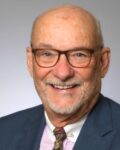
Matt Coles was previously the deputy national legal director at the ACLU, where he was responsible for the organization’s work on race, voting, disability and immigration.
David Levine is author, coauthor, or coeditor of over sixty editions of his seven books, including Remedies: Public and Private and California Civil Procedure. He has served a researchanalyst for the Northern District of California’s Early Neutral Evaluation Program.
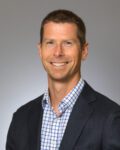
Dave Owen is an environmental lawyer specializing in energy, land and water use, and administrative law. He previously worked as a geologist and environmental consultant.

Seema Patel previously was the inaugural deputy director of San Francisco’s Office of Labor Standards Enforcement, senior advisor to the White House Initiative on Asian Americans and Pacific Islanders, and an appellate litigator and later trial attorney= at the Office of the Solicitor, U.S. Department of Labor.
Health Care and Vaccines
KTVU
Professor Sarah Hooper, executive director of the UCSFf/UC Law SF Consortium on Law, Science & Health Policy, speaks with anchor Alex Savidge about the deep human costs of cuts to Medicaid.
>> Proposed Cuts for Medicaid and Medicare
Bulletin of the Atomic Scientists
Professor Dorit Reiss authors an op-ed that analyzes the public health and policy implications of Sec. Robert F. Kennedy Jr.’s HHS leadership and what certain moves could signal.
>> Will RFK Jr. gut US vaccine policy? Here’s what to watch for
Reiss provides context and analysis of Sec. Kennedy’s response to the Texas measles outbreak, noting that his “focusing on deaths instead of harms in this context is a common anti-vaccine trope.”
>> RFK Jr.’s lukewarm endorsement of vaccines to end the Texas measles outbreak
Politico
Reiss discusses the challenges to possible legal action against the federal government not holding the meeting of the Advisory Committee on Immunization Practices.
>> Could ACIP delay wind up in court?

Sarah Hooper is executive director of the UCSF-UC Law Consortium on Law, Science & Health Policy and policy director of the Medical-Legal Partnership for Seniors clinic. She has a special interest in the role of law in improving systems of care for underserved older individuals with complex medical and social needs.
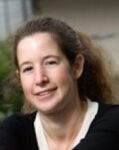
Dorit Reiss is a researcher and writer on the legal and policy issues of vaccines, and the anti-vaccine movement.
Immigration and Asylum
The Guardian
Karen Musalo, director of the Center for Gender & Refugee Studies, comments in this story on disparities in the granting of asylum among judges who hear requests.
>> He was tortured in Turkey. Then he faced a US immigration judge who almost never grants asylum
Associated Press
Musalo discusses differences in asylum policy from the previous administration in this story about people from Venezuela and Haiti seeking refuge in the U.S. as they flee countries with lacking humanitarian conditions.
>> Venezuelan family in US under curtailed humanitarian protections clings to faith amid uncertainty
Newsweek
Christine Lin of the Center for Gender and Refugee studies comments on a White House move to stop legal support in immigration court for children who enter the United States alone.
>> Donald Trump’s Migrant Children Move Sparks Anger
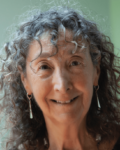
Karen Musalo has written extensively on refugee law issues, and contributed to the evolving jurisprudence of asylum law not only through her scholarship, but through her litigation of landmark cases.
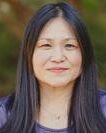
Christine Lin oversees all aspects of the Center for Gender & Refugee Studies training and technical assistance programs. She is a founding member of the Immigrant Health Equity and Legal Partnerships (ImmHELP), a medical-legal collaboration of attorneys and health professionals, and has an interest in trauma-informed representation.
Environment and Natural Resources
KQED
Dave Owen breaks down the San Francisco Clean Water Act case and the broader controversy.
>> Supreme Court Sides With San Francisco Against EPA in Sewage Lawsuit
Bloomberg Law
Owen discusses the practical implications of a SCOTUS ruling on sewage permits under the Clean Water Act.
>> High Court Rejects EPA Sewage Permits in San Francisco Win
Emeritus Prof. John Leshy comments on the federal government’s move to allow more logging on public lands.
>> Trump’s ‘God Squad’ Timber Logging Mandate Is Legally Murky
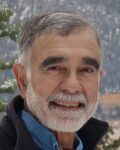
John Leshy previously served as solicitor (general counsel) of the U.S. Department of the Interior throughout the Clinton Administration and co-chaired the Obama Administration transition team for the Interior Department. In 2013 he received the Defenders of Wildlife Legacy Award for lifetime contributions to wildlife conservation.
Workplace Diversity
The Financial Times
Professor Joan Williams, founding director of the Equality Action Center, is quoted in a Financial Times story, and EAC’s research on bias in hiring is cited.
>> Can Businesses Ever Run a True Meritocracy?
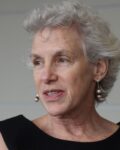
Joan Williams is the founding director of the Equality Action Center and is widely known for “bias interrupters,”—an evidence-based metrics-driven approach to eradicating implicit bias.
